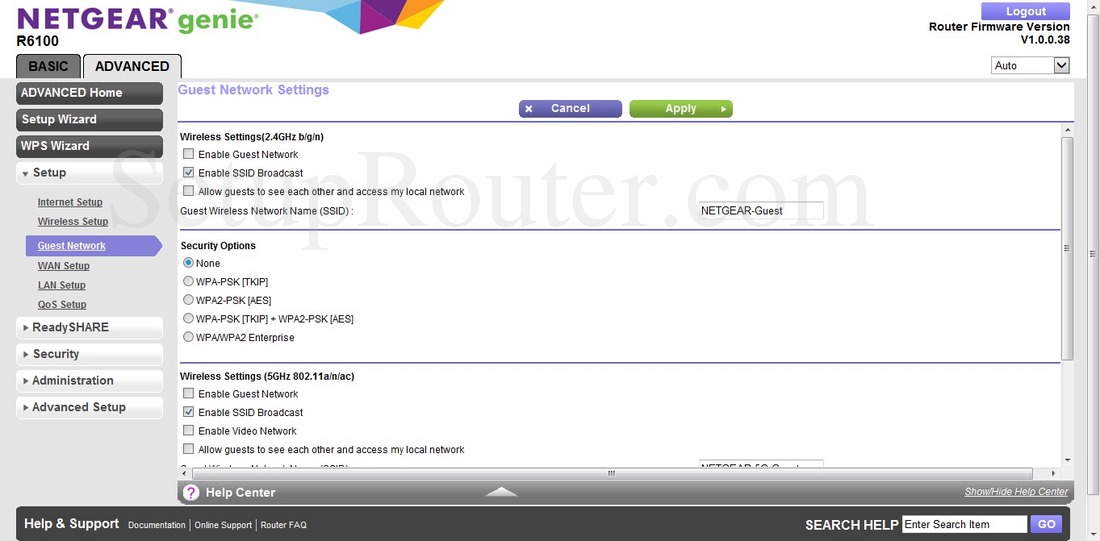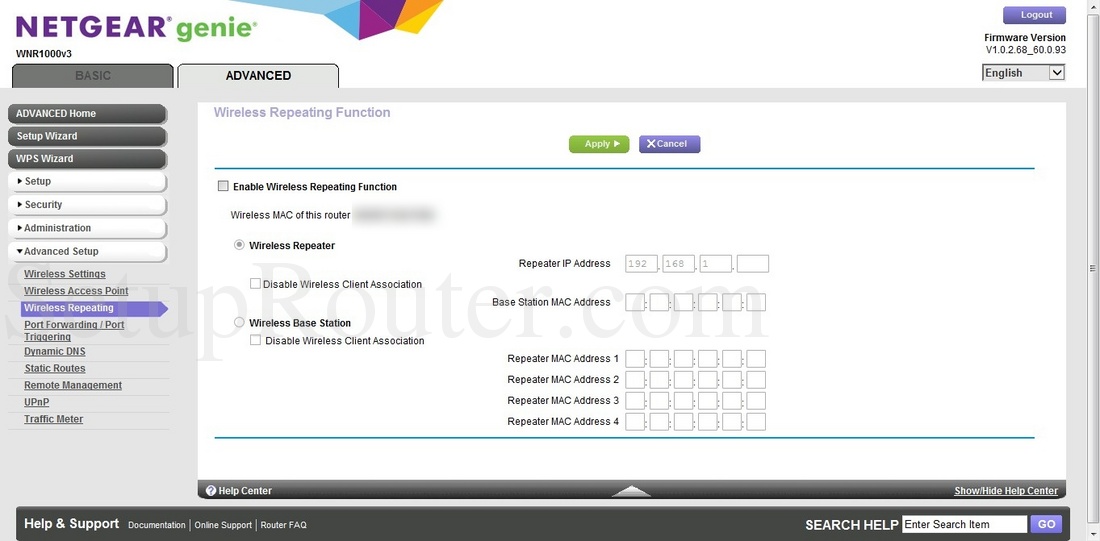
Oh, and the X8 supports 802.11 b/g/n at 2.4 GHz and 802.11 a/n/ac at 5 GHz so all of your wireless protocols are supported.īut wait, I’m not done geeking out here. And if you have a ton of wireless devices like in my home, there is a load balancing feature to ensure that wireless bandwidth is distributed between the two 5GHz bands. This means that the device will connect with the fastest speed for that individual device. The Nighthawk X8 has something called Smart Connect which figures out which WiFi band to assign each device to. When you combine all of the bands, you get a theoretical combined speed of 5.3Gbps. What does that mean? Well, it has 3 WiFi bands: one 2.4GHz and two 5GHz bands. Internally, the Nighthawk X8 boasts some of the most advanced technology in the market. And what are those? Read on for the details! Geeking out on the Nighthawk X8 Tech
#NETGEAR GENIE ASSIGN STATIC IP FREE#
You must find a good physical place to put the X8, one that is off the ground for better transmission and reception and free from other signal-blocking obstacles in order to experience its powerful features and capabilities. Also, obstructing the body also would block several internal antennae as well. It also prevents other items from being stacked on top of it which is a good thing as you do not want to cause overheating by doing so. It has 4 external antennae (more about that later) and has two rather pronounced bulges on the top, most likely for better cooling of the inner circuitry. Physically, it is quite large actually (as you can see from the photo above). The Nighthawk X8 is a beast, literally and figuratively. In fact, the Nighthawk X8, which is a premium WiFi router, seems to be nicely positioned at the top of the premium WiFi router marketplace.ĭisclaimer: I am a NETGEAR Ambassador and I received this product in exchange for my honest, unbiased opinion and review. In my opinion, this latest edition to the Nighthawk family truly sets the gold standard for WiFi routers. Having tested both the X4 and X6, I have become quite accustomed to the user interface, the performance and the interworking of each of these WiFi routers. The latest of these is the NETGEAR Nighthawk X8 which also goes by the names of the AC5300 and model R8500. The dhcp_server_second name is now added to the Pool Name drop-down list.I have been lucky to have been a NETGEAR Ambassador for the past year which has allowed me to receive (for free) and test several NETGEAR devices, in exchange for my unbiased and honest reviews.


Select System > Services > DHCP Server > DHCP Pool Configuration.In the IP Range To field, enter 10.200.2.1.In the IP Range From field, enter 10.200.2.1.In the IP Range To field, enter 10.200.1.1.Ī screen similar to the following displays:.In the IP Range From field, enter 10.200.1.1.For Admin Mode, select the Enable radio button.Select System > Services > DHCP Server > DHCP Server Configuration.For RIP Admin Mode, select the Enable radio button.Select Routing > RIP >Advanced > Interface Configuration.In the Routing Mode field, select Enable.In the IP Address field, enter 10.100.1.1.Scroll down and select the 1/0/3 check box.

Select Routing > IP > Advanced > IP Interface Configuration.Create a routing interface and assign 10.100.1.1/24 to it.For Routing Mode, select the Enable radio button.Select Routing > IP > Basic > IP Configuration.Ī screen similar to the following displays.
#NETGEAR GENIE ASSIGN STATIC IP HOW TO#
This example shows how to configure DHCP pool to assign IP addresses to DHCP clients using DHCP 元 relay.


 0 kommentar(er)
0 kommentar(er)
